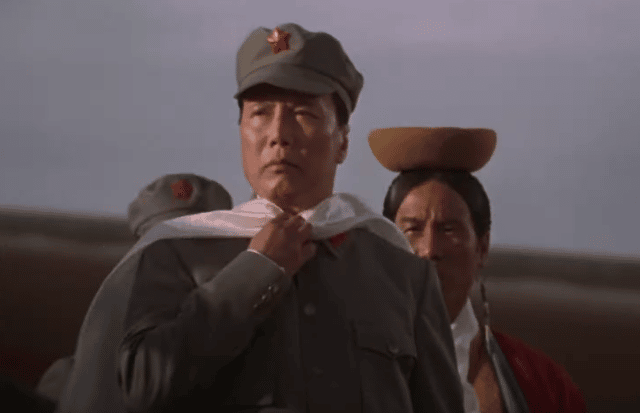11 films banned in China: censorship of movies from Call Me By Your Name to Christopher Robin explained
and live on Freeview channel 276
China limits the number of foreign films that are shown in theatres across the country each year - as reported by Forbes, only 34 foreign titles make the cut, meaning that audiences miss out on hundreds of major releases by default.
But even movies that are slated for Chinese release can wind up being banned in the country or heavily censored for a variety of odd reasons, from featuring too many zombies, or even the appearance of Winnie the Pooh.
Advertisement
Hide AdAdvertisement
Hide AdChina offers a huge audience for the films that are allowed a release there - it is the second biggest market outside North America, worth billions of dollars each year. This makes it hard for production companies to say no when Chinese censors request edits before the films can be screened, but in some cases, producers have stood their ground.
Sometimes films that were due a release in China prove to be so offensive to the tastes of the country’s regulators that no amount of edits will save it. These are the biggest films that have been banned or censored in China over the years:


Which films have been banned in China?
Seven Years in Tibet (1997)
This biographical war drama starring Brad Pitt and David Thewlis was banned in China due to its depiction of Communist China’s military. Pitt and Thewlis, as well as the film’s director, Jean-Jacques Annaud, were banned for China for life - although Annaud returned in 2012, and Pitt visited in 2014 and 2016.
Additionally, Sony, who distributed the film, were told that all future Sony movies would be banned in China over the insult, although the move didn’t last. Sony also refused to bow to pressure to remove a scene of the Statue of Liberty from Spider-Man: No Way Home, meaning that the film was not released in China, presumably costing the company millions.


World War Z (2013)
Advertisement
Hide AdAdvertisement
Hide AdThe 2013 zombie action flick was not released in China - this was reportedly because films which feature zombies and ghosts are typically not permitted in the country (Ghostbusters is also technically banned). World War Z offers a double whammy as it stars Brad Pitt in a leading role, and as has been established, he is not a popular figure in the country.
World War Z struggled financially as its production budget grew to $200 million, and without the Chinese market it made less than $600 million at the box office, which meant that a planned sequel was scrapped.


Call Me by Your Name (2017)
China is not a great place to live if you’re a member of the LGBT+ community - the country has no anti-discrimination laws for the community on the books, and Chinese mainstream media does not represent non-heterosexual relationships. Western films with LGBT+ themes are often heavily censored in China.
In the case of Call Me by Your Name, about the romance between a 17 year old student and an older man working as his father’s research assistant, the edits required to make the film palatable for Chinese censors would have probably resulted in the movie being about 18 seconds long. In the end the movie was pulled from the Beijing International Film Festival.


Christopher Robin (2018)
Advertisement
Hide AdAdvertisement
Hide AdIn arguably one of the most hilarious reasons for banning a movie - Christopher Robin was not released in China over concerns of online meme culture which drew comparisons between Chinese President Xi Jinping and the teddy bear Winnie the Pooh. Some meme creators believe the two look alike and China has come down hard on any Pooh-related media. At the time, no reason for the film’s lack of release in the country was given, but as it was at the height of the Xi/Pooh memes, it’s not hard to connect the dots.
The horror film Winnie the Pooh: Blood and Honey, which had a limited cinematic release this year had its Hong Kong and Macau release cancelled, officially due to technical issues. However, many believe the real reason the film was Pooh-Poohed was due to President Xi’s fear of being bullied online.


Bohemian Rhapsody (2018)
The Freddie Mercury biopic and Best Picture nominee did make it to China, but not before the censors went to work - roughly one minute of content was cut before the movie was granted a limited release.
Predictably the edits saw scenes of Rami Malek’s Mercury kissing other men cut, along with scenes of drug use. Chinese network Mango TV also provoked backlash when they censored Malik’s acceptance speech for the Best Actor Oscar, changing the subtitles from ‘gay man’ to ‘special group’.


Lots of Marvel films (2019-2022)
Advertisement
Hide AdAdvertisement
Hide AdBlack Widow, Shang-Chi and the Legend of the Ten Rings, Eternals, Thor: Love and Thunder, Dr. Strange in the Multiverse of Madness were all barred from Chinese cinemas, with no official reason given. It has been speculated that the blanket ban on Marvel movies was part of an escalating trade war with the US.
As the last Marvel film to be allowed in China before the ban, Spider-Man: Far From Home, made $200 million in the country, it’s possible that the five film ban may have cost Marvel around $1 billion in lost revenue. The Marvel blackout ended without explanation last November - both Black Panther: Wakanda Forever and Ant-Man and the Wasp: Quantumania landed in Chinese cinemas.
Comment Guidelines
National World encourages reader discussion on our stories. User feedback, insights and back-and-forth exchanges add a rich layer of context to reporting. Please review our Community Guidelines before commenting.
